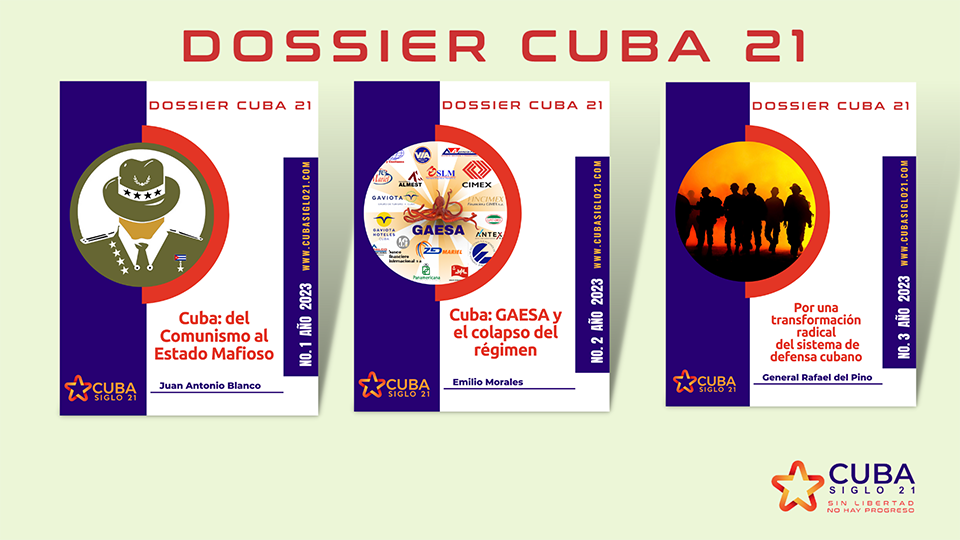La colección Dossier Cuba 21 constituyen publicaciones monotemáticas que han sido escritas a solicitud expresa de Cuba Siglo 21 por especialistas en los múltiples campos y factores que inciden en la evolución actual de la realidad cubana.
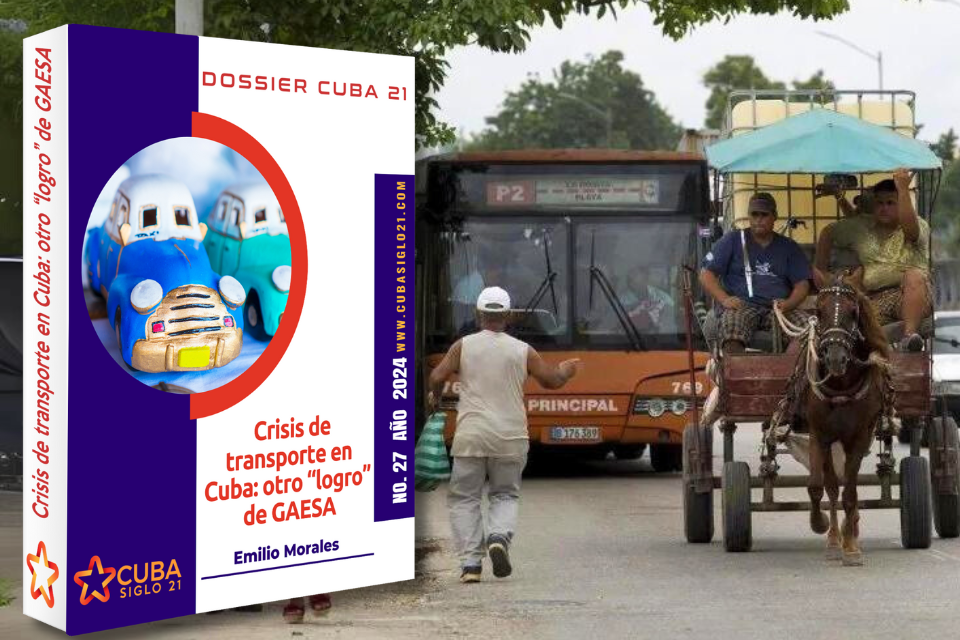
Crisis de transporte en Cuba: otro “logro” de GAESA
El sector de transporte es otro de los sectores importantes de la economía que es víctima del saqueo y el que control que tiene GAESA –principal organización oligárquico-mafiosa del régimen cubano– sobre las finanzas del país.
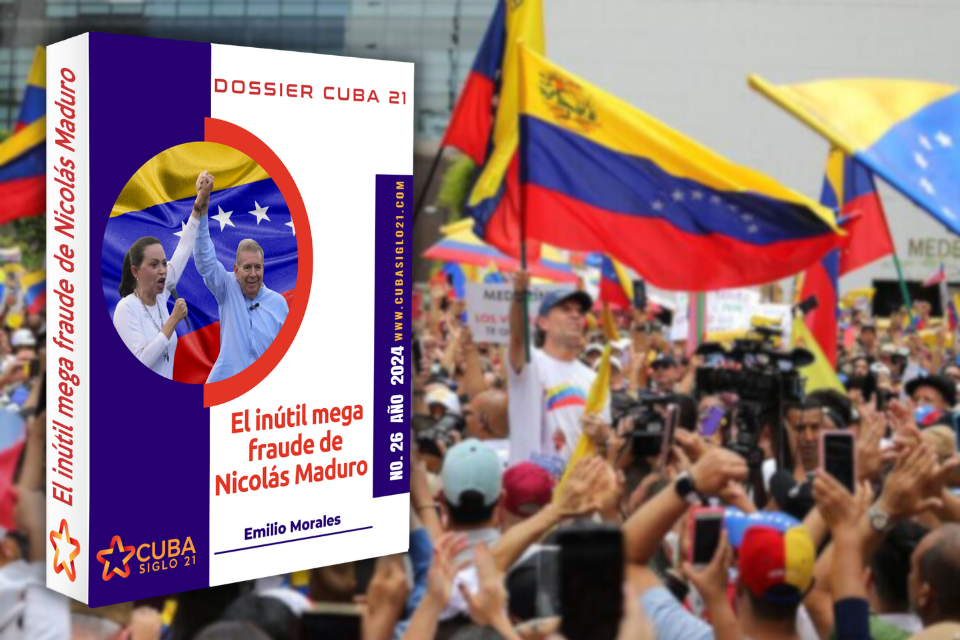
El Inútil Megafraude de Nicolás Maduro
El megafraude de Maduro resultó inútil. Perdió y todo el mundo lo sabe. Sin embargo, su voluntad de aferrarse al poder a sangre y fuego siguiendo las instrucciones de La Habana ha convertido a Venezuela en un problema neurálgico para la estabilidad regional e internacional.
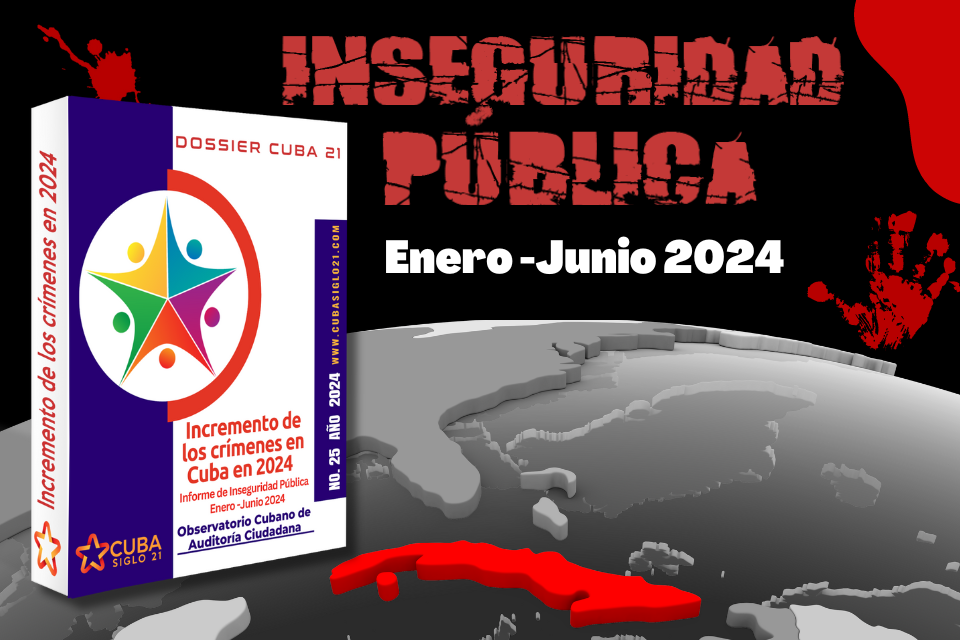
Incremento de los crímenes en Cuba en 2024: Informe de Inseguridad Ciudadana
El primer semestre de 2024 revela un preocupante aumento de la criminalidad en comparación con el mismo período del año anterior. En total, se reportaron 432 delitos entre enero y junio de 2024, lo que representa un promedio diario de 2.37 crímenes.

El auge del crimen en Cuba 2023: Informe de Inseguridad Pública
El 2023 fue el año en que la criminalidad comenzó a ser reconocida como un problema en Cuba. A lo largo de 2023, el OCAC monitoreó y recopiló un total de 649 reportes de crímenes en Cuba, lo que equivale a casi dos crímenes por día.
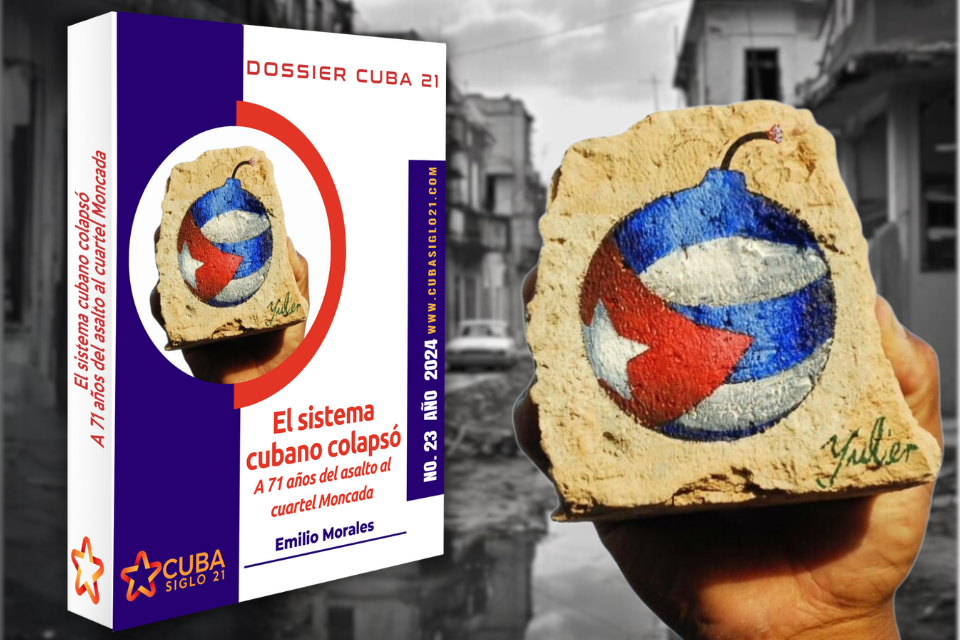
El sistema cubano colapsó: a 71 años del asalto al cuartel Moncada
La caída de forma conjunta en más de un 50% de las tres principales líneas de ingresos de Cuba —exportación de servicios médicos, remesas y turismo— ha acelerado el colapso del sistema. La celebración de este 26 de julio es un día que comienza a marcar la cuenta regresiva de la extinción del régimen cubano dada la profundidad de la crisis en la que se encuentra empantanado y su incapacidad manifiesta para salir de ella.
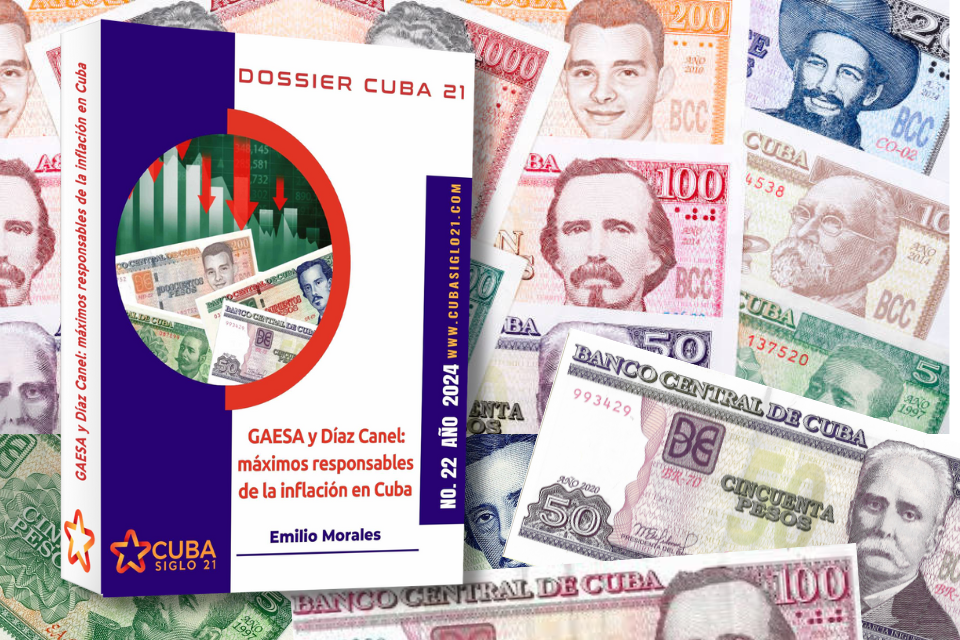
GAESA y Díaz Canel: máximos responsables de la inflación en Cuba
La caída del peso cubano (CUP) frente al dólar experimentada en las últimas semanas denota la incapacidad del gobierno para revertir esta situación que ya se ha ido fuera de control. Los grandes culpables de la inflación son GAESA –vinculada al clan Castro y sus allegados– y Miguel Díaz Canel, el presidente impuesto por Raúl Castro.

El totalitarismo en Cuba
La estatización de la propiedad suprimiendo la libertad de empresa y mercado constituye el elemento clave que al final –a falta de un mecenas que financie sus deficiencias– ha conducido a la crisis multisistémica que ha empujado a más del 80% de la población cubana a la extrema pobreza.
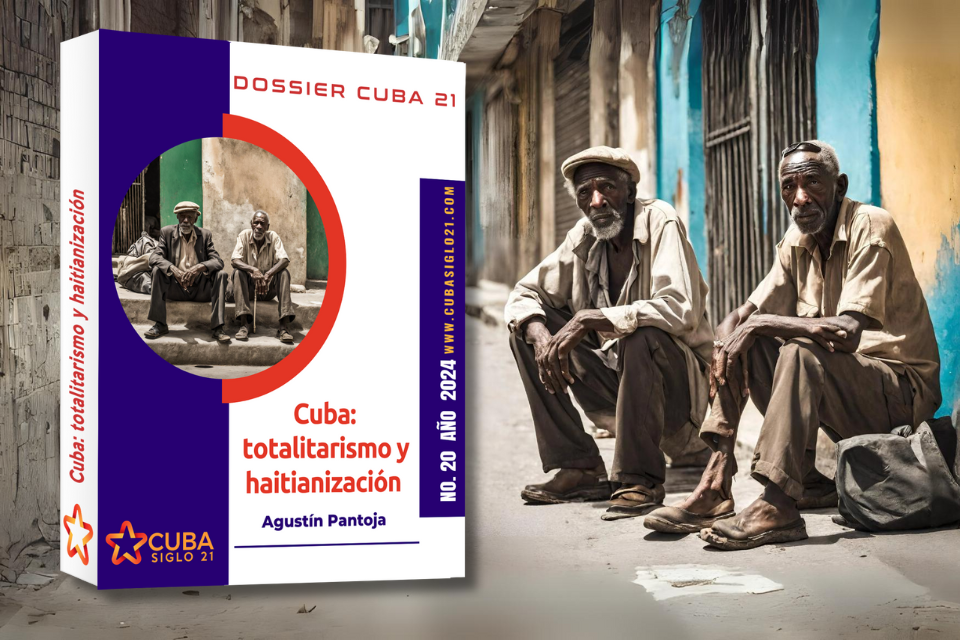
Cuba: totalitarismo y haitianización
Cada vez es más frecuente escuchar a cubanos decir que Cuba está igual o peor que Haití. En Cuba, con una historia diferente a la de Haití, la implantación de un sistema totalitario después de 1959 generó las bases del deplorable estado actual. Como resultado Cuba, de uno de los países latinoamericanos de mayor progreso hasta esa fecha, en el año 2024 se aproxima a Haití: el país más atrasado del Hemisferio Occidental.
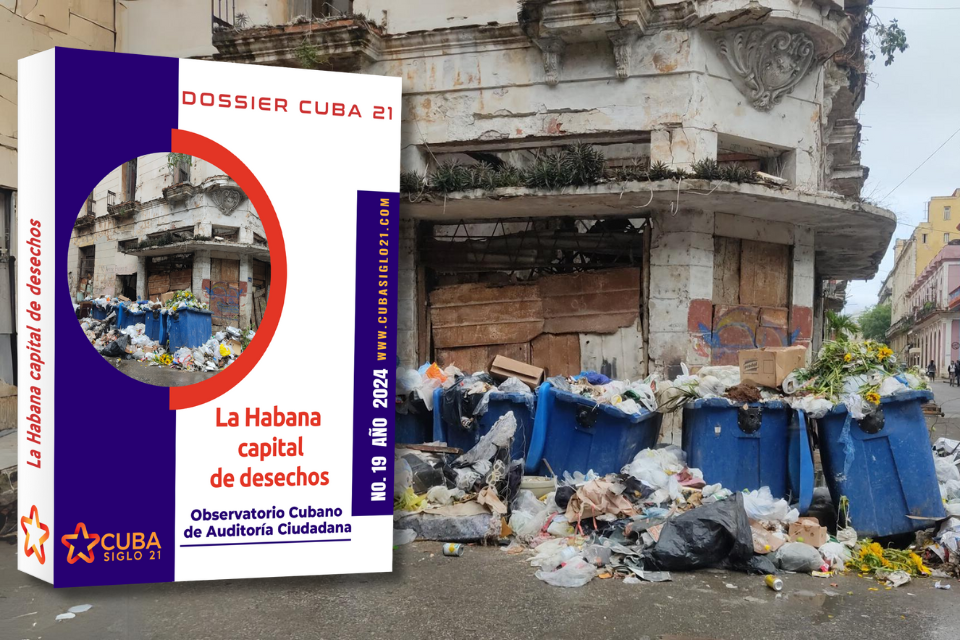
La Habana capital de desechos
En La Habana se acumulan diariamente algo más de 7,600 m3 de basura en espacios públicos cercanos a las viviendas y centros que los generaron. Como promedio, se recoge solo el 68%, mientras el resto permanece en las calles creando focos de infección y hasta incendios urbanos por la producción de gas metano.
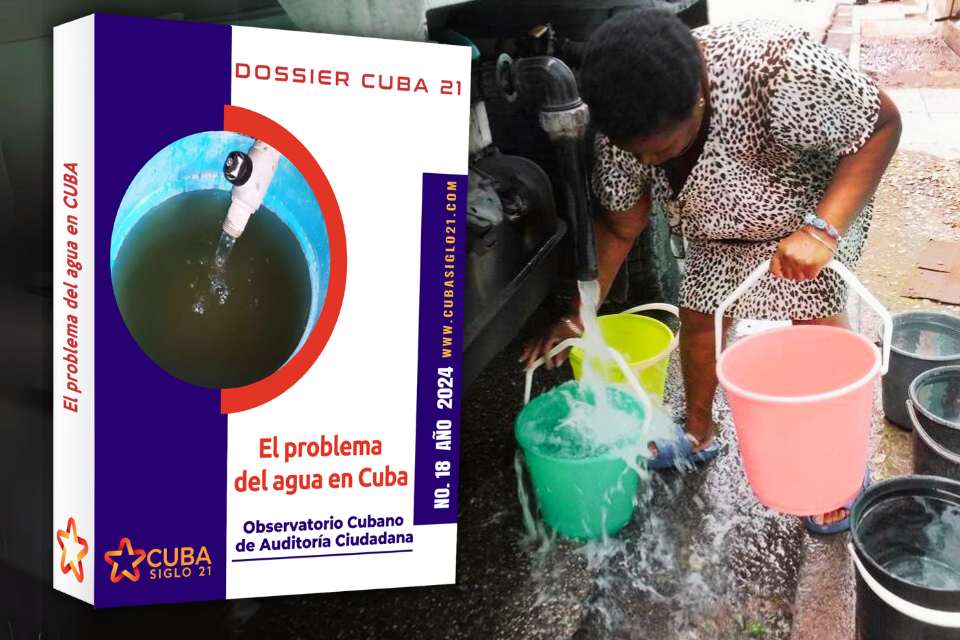
El problema del agua en Cuba
La razón de que más del 67% de la población (7,435,690 ciudadanos) no reciba agua de manera estable en la actualidad es el resultado del abandono del régimen de mantenimiento por más de medio siglo a la red de acueductos mientras los recursos se invertían en construir cada vez más embalses a fines de propaganda. Las inversiones priorizan los centros turísticos del conglomerado oligárquico de GAESA y no se destinan a garantizar el derecho de acceso a agua potable de la ciudadanía.
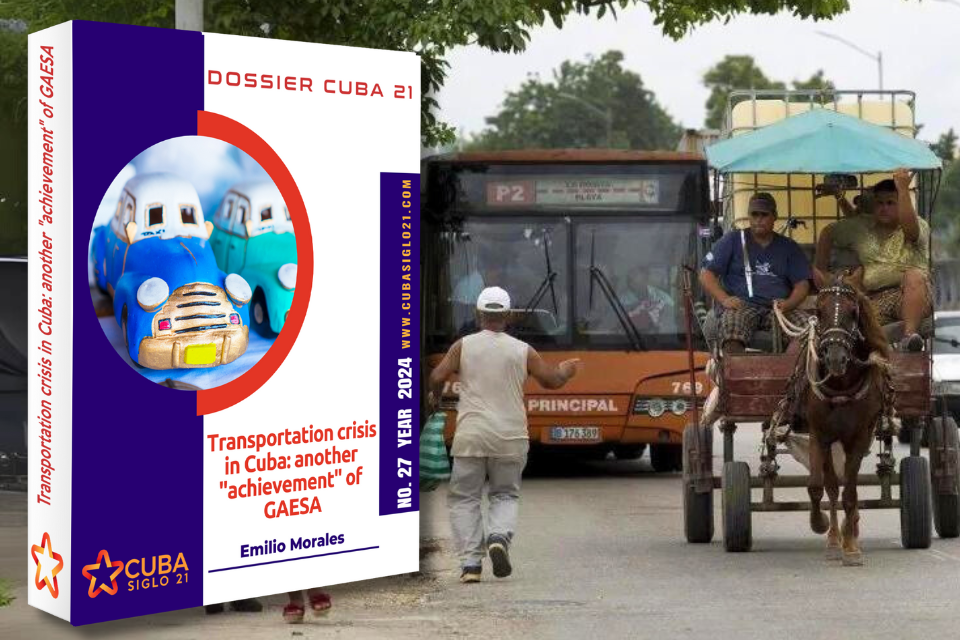
Transportation crisis in Cuba: another “achievement” of GAESA
The transportation sector is another important sector of the economy that is a victim of the looting and the control that GAESA -the main oligarchic-mafioso organization of the Cuban regime- has over the country’s finances.
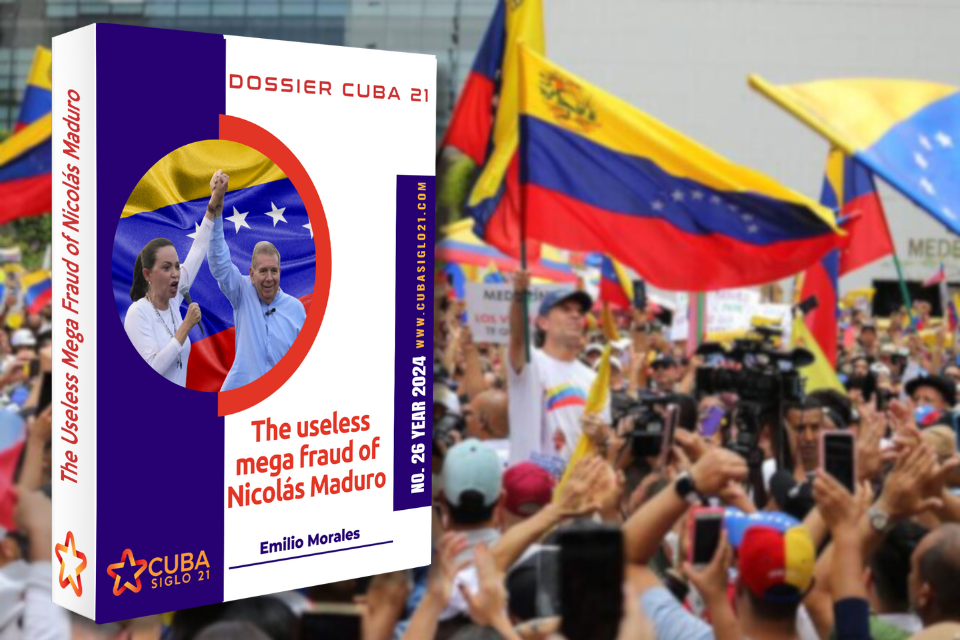
The Useless Mega Fraud of Nicolás Maduro
Maduro’s mega-fraud turned out to be useless. He lost and everybody knows it. However, his will to cling to power by blood and fire following Havana’s instructions has turned Venezuela into a neuralgic problem for regional and international stability. But the struggle for Venezuela’s future is far from over.
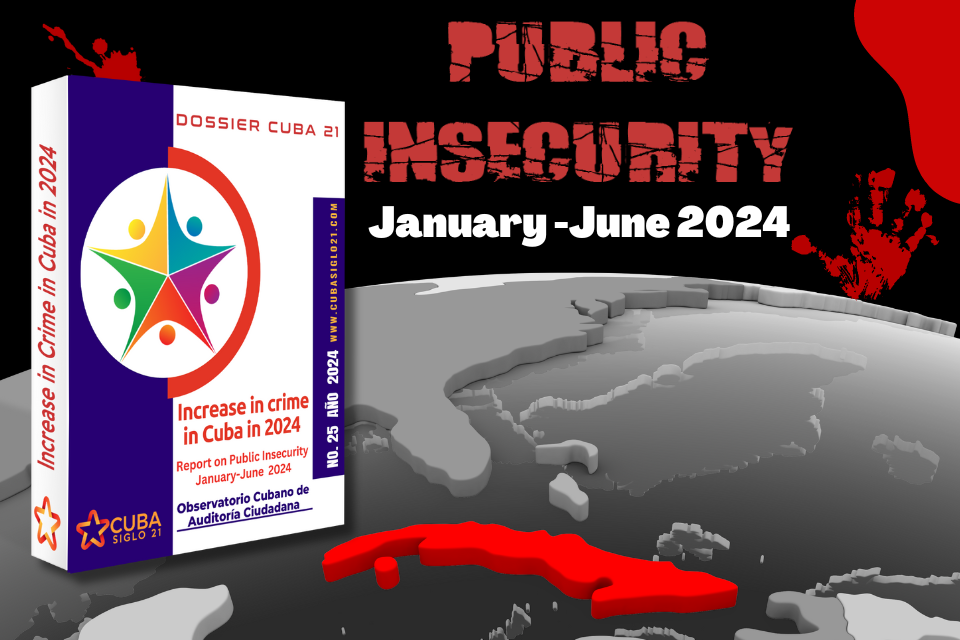
Increase in crime in Cuba in 2024: Public Insecurity Report
During the first half of 2024 reveals a worrysome increase in crime compared to the same period of the previous year. In total, 432 crimes were reported between January and June 2024, representing a daily average of 2.37 crimes.

The rise of crime in Cuba 2023: Report of Public Insecurity
2023 was the year in which crime began to be recognized as a problem in Cuba. Throughout 2023, OCAC monitored and collected a total of 649 crime reports in Cuba, which is equivalent to almost two crimes per day.
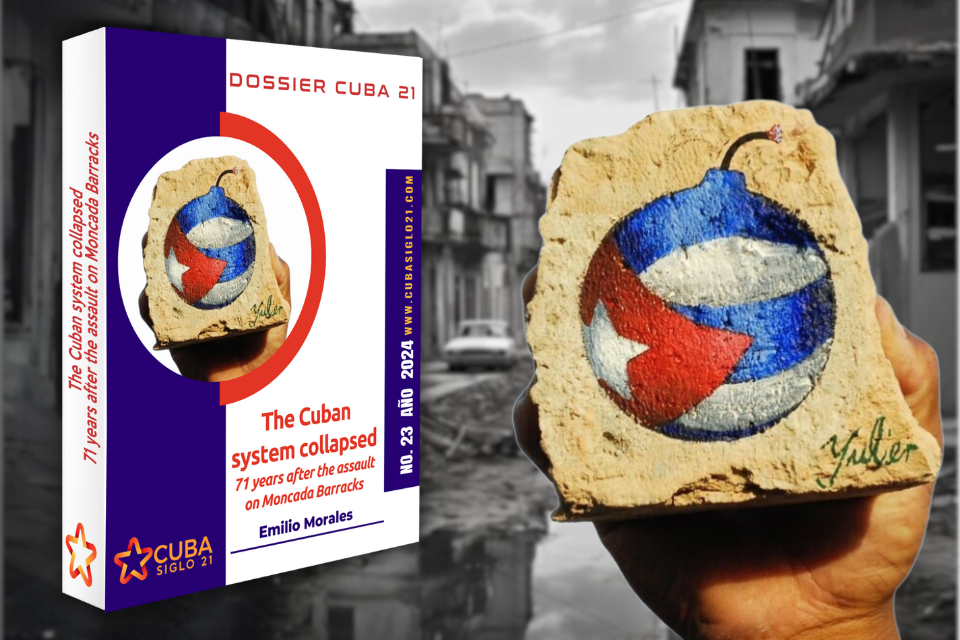
The Cuban system collapsed: 71 years after the assault on the Moncada barracks
The sharp drop of more than 50% of the Cuba’s three main lines of income – medical exports, remittances and tourism – have hastened the collapse of the governance regime. The celebration of 26 of July is a day that begins to mark the countdown to the extinction of the Cuban regime, given the depth of the crisis in which it is mired and its manifest incapacity to get out of it.
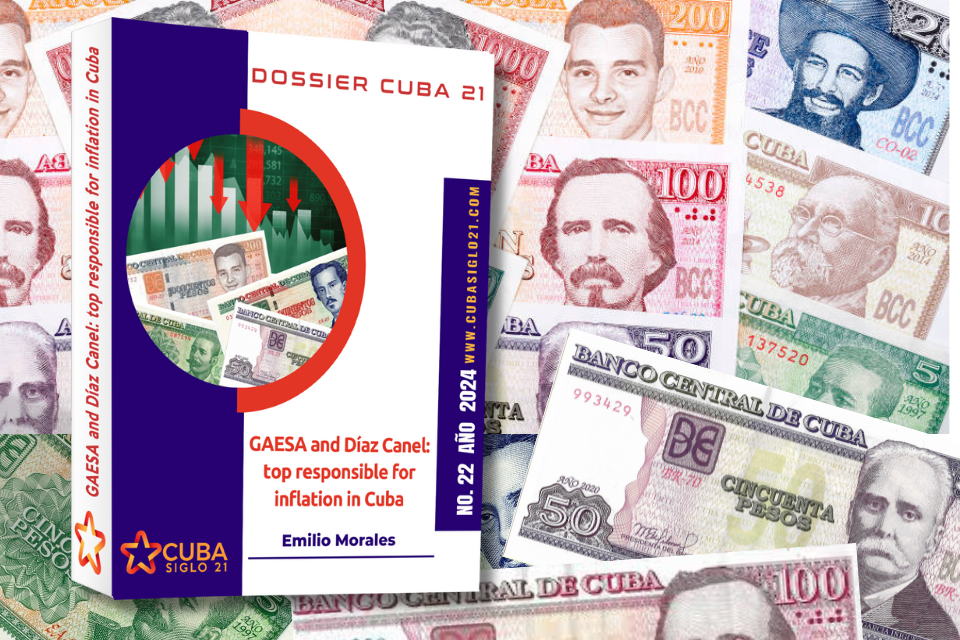
GAESA and Díaz Canel: top responsible for inflation in Cuba
The fall of the Cuban peso (CUP) against the dollar experienced in recent weeks denotes the government’s inability to reverse this situation that has already gotten out of control. The big culprits of inflation are GAESA -linked to the Castro clan and their cronies- and Miguel Díaz Canel, the president imposed by Raúl Castro.

Totalitarianism in Cuba
The nationalization of property by suppressing the freedom of enterprise and the market is the key element that in the end – in the absence of a foreign patron to finance its shortcomings – has led to the multi-systemic crisis that has pushed more than 80% of the Cuban population into extreme poverty.
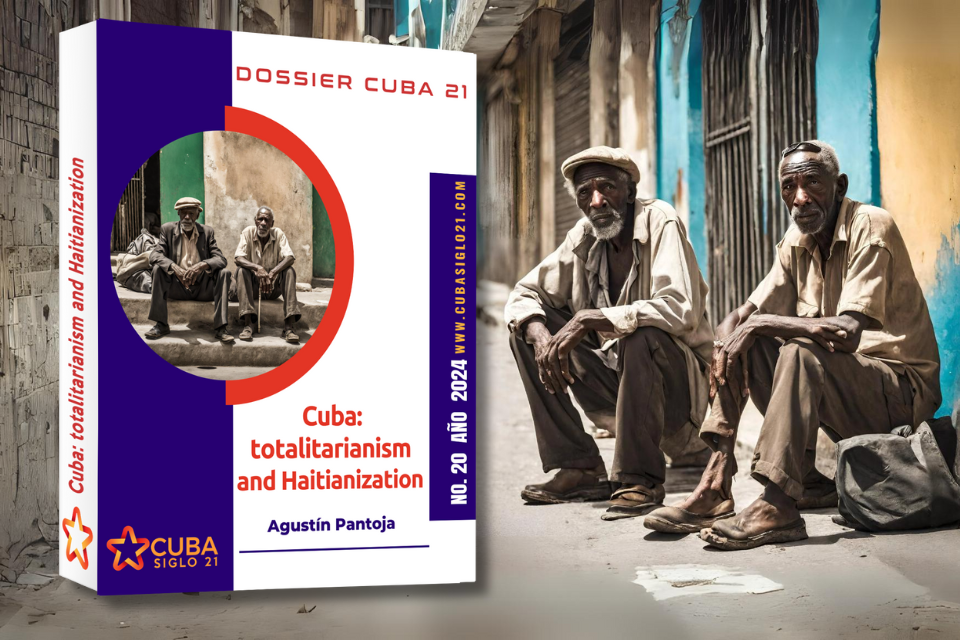
Cuba: totalitarianism and Haitianization
It is increasingly common to hear Cubans say that Cuba is the same or worse than Haiti. In Cuba, with a different history than Haiti, the implementation of a totalitarian system after 1959 generated the basis for the current deplorable state of affairs. As a result, Cuba, from one of the most progressive Latin American countries up to that date, in the year 2024 approaches Haiti: the most backward country in the Western Hemisphere.
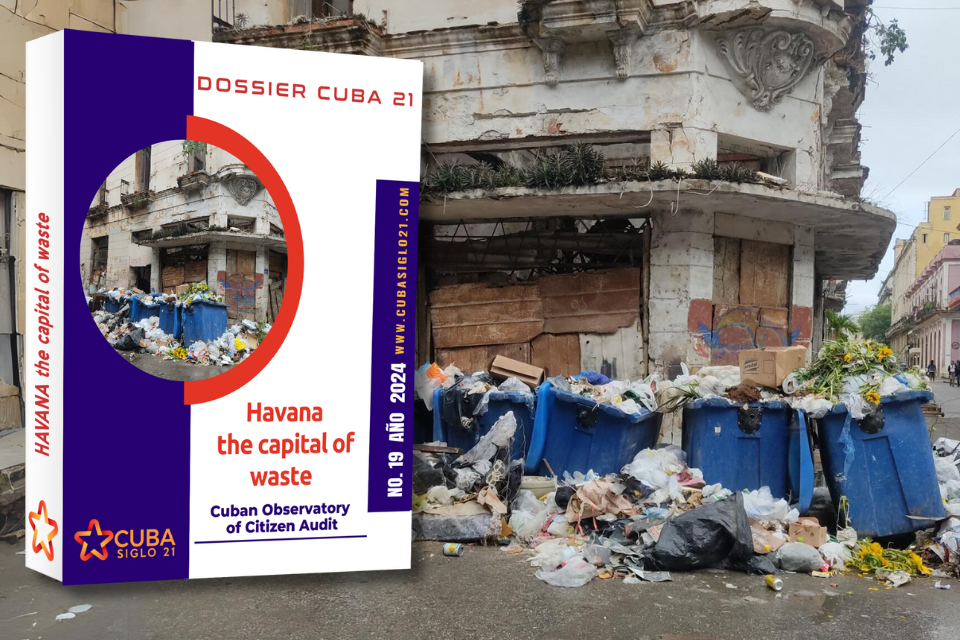
Havana the capital of waste
In Havana, more than 7,600 m3 of garbage accumulates daily in public spaces near the homes and centers that generated it. TOn average, only 68% of the garbage is collected, while the rest remains in the streets creating sources of infection and even urban fires due to the production of methane gas.

The Water Problem in Cuba
The reason that more than 67% of the population (7,435,690 citizens) does not receive water in a stable manner today is the result of the abandonment of the maintenance of the water network for more than half a century while resources were invested in building more and more reservoirs for propaganda purposes. nvestments prioritize the provision of water to the tourist centers of GAESA’s oligarchic conglomerate and are not oriented to guarantee the right of accessing drinking water for the citizens.

